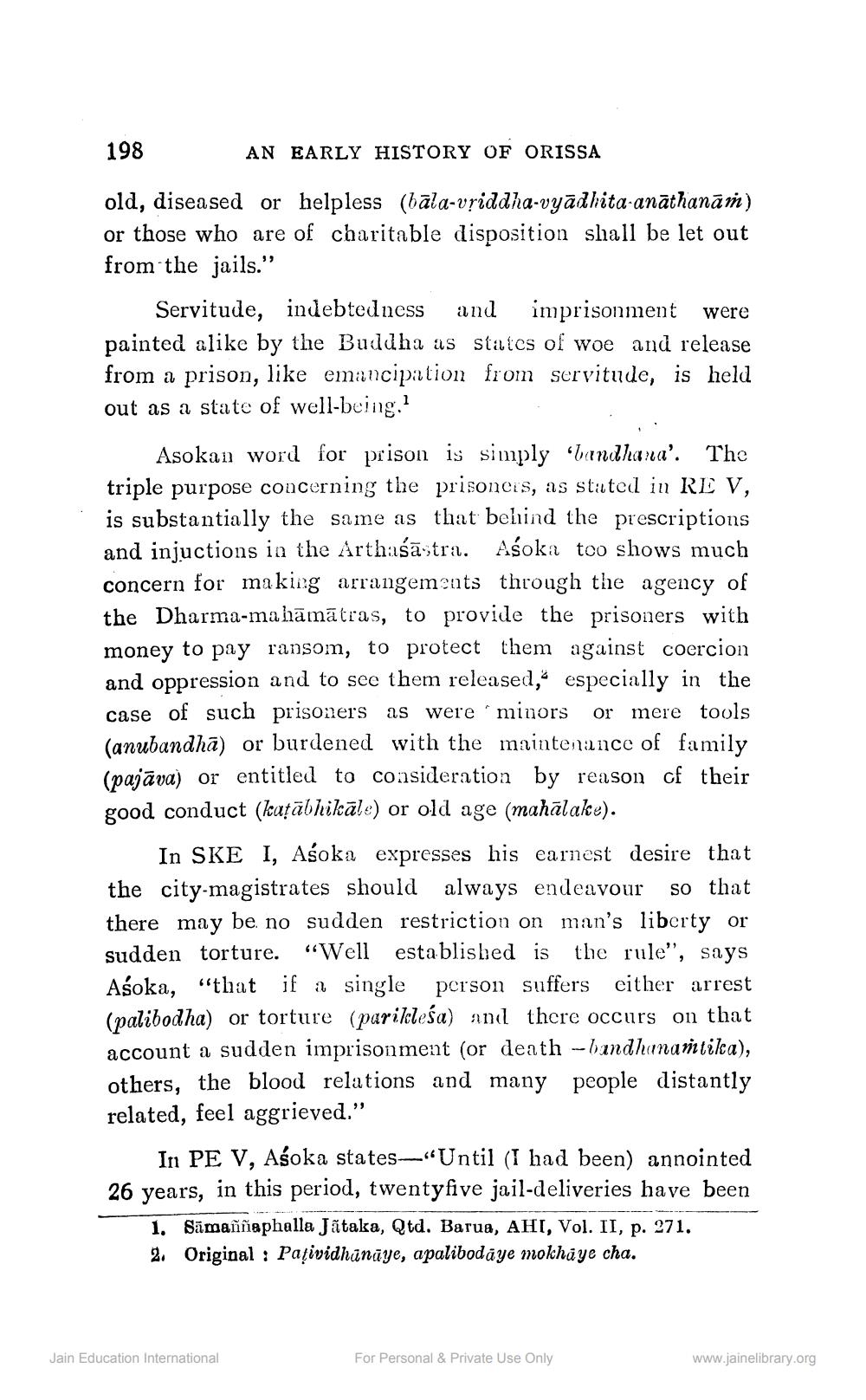________________
198
AN EARLY HISTORY OF ORISSA
old, diseased or helpless (bāla-vriddha-vyādhita-anāthanāṁ) or those who are of charitable disposition shall be let out from the jails."
Servitude, indebtedness and imprisonment were painted alike by the Buddha as states of woe and release from a prison, like emancipation from servitude, is held out as a state of well-being?
Asokan word for prison is simply bandhana'. The triple purpose concerning the prisoners, as stated in RE V, is substantially the same as that behind the prescriptions and injuctions in the Arthuśāstra. Asoka too shows much concern for making arrangements through the agency of the Dharma-ma hāmātras, to provide the prisoners with money to pay ransom, to protect them against coercion and oppression and to see them released, especially in the case of such prisoners as were minors or mere tools (anubandhā) or burdened with the maintenance of family (ajāva) or entitled to consideration by reason of their good conduct (kațābhikāle) or old age (mahālake).
In SKE I, Aśoka expresses his earnest desire that the city-magistrates should always endeavour so that there may be. no sudden restriction on man's liberty or sudden torture. “Well established is the rule", says Asoka, "that if a single person suffers either arrest (palibodha) or torture (parikleśa) and there occurs on that account a sudden imprisonment (or death --bandhanartika), others, the blood relations and many people distantly related, feel aggrieved.”
In PE V, Asoka states—"Until (I had been) annointed 26 years, in this period, twentyfive jail-deliveries have been
1. Sāmaññephalla Jãtaka, Qtd. Barua, AHI, Vol. II, p. 271. 2. Original : Pațividhanaye, apalibodãye mokhaye cha.
Jain Education International
For Personal & Private Use Only
www.jainelibrary.org




